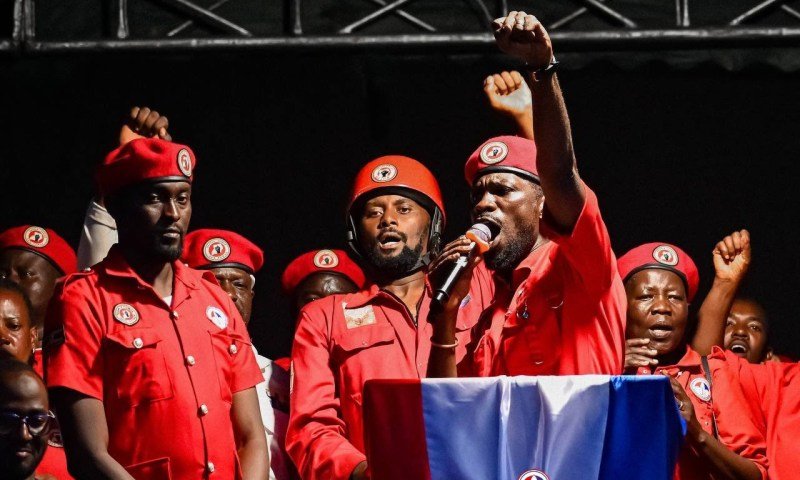Under Which Law? Tensions Flare In Parliament Over Legality Of Blocking NUP From IPOD.

Under Which Law? Tensions Flare In Parliament Over Legality Of Blocking NUP From IPOD
Members of Parliament have directed sharp scrutiny toward the Inter-Party Organization for Dialogue (IPOD) following concerns over the dismissal of the National Unity Platform’s (NUP) application for membership, which many lawmakers described as unfair and procedurally flawed.
The matter came up during the October 28th plenary session after the Minister of Justice and Constitutional Affairs, Norbert Mao, tabled The Political Parties and Organisations (Inter-Party Organization for Dialogue) Regulations, 2025.
However, several legislators questioned the timing and legitimacy of NUP’s exclusion from IPOD, noting that the decision appeared to have been made even before the regulations were introduced to Parliament.
Kira Municipality MP Ibrahim Ssemujju Nganda challenged Mao to explain the legal basis for denying NUP’s entry into IPOD. “One of the political parties that is supposed to be a member of IPOD requested to join and was stopped. I don’t know under what arrangement this was done. We’ve never seen any advertisement calling for applications, and now these regulations are being introduced after the decision was already made,” Ssemujju said.
Wakiso District Woman MP Betty Ethel Naluyima accused IPOD of conspiring to undermine NUP’s participation, arguing that the organization’s actions lacked a legal foundation. “This looks like a deliberate attempt to frustrate NUP. The regulations were not even in place at the time, so under what law did they stop the party from joining?” Naluyima asked.
Bukomansimbi South MP Geoffrey Kayemba also criticized what he called a government-driven campaign against NUP. “It’s contradictory. They claimed regulations existed even before they were officially introduced,” Kayemba remarked.
Despite Mao’s tabling of the regulations, several MPs insisted that the presentation was procedurally irregular and intended to mislead the House.
Nakaseke Central MP Allan Mayanja said what was uploaded on legislators’ iPads indicated a motion rather than resolutions, suggesting that Parliament was yet to debate or adopt the document. “On our iPads, it reads ‘motion,’ not ‘resolutions,’ meaning it’s supposed to be a motion for Parliament to adopt or reject. But the minister tabled it as if they were already approved regulations,” Mayanja argued.
Erute South MP Jonathan Odur also questioned the minister’s authority to table regulations that had not yet undergone parliamentary scrutiny. “The minister should have presented a draft, not finalized regulations. It must be clear on record that Parliament must first examine and approve them before they become binding,” Odur said, warning that any premature declaration would exceed the minister’s powers.
In his response, Minister Mao apologized for the miscommunication, clarifying that what he presented was indeed a draft for parliamentary approval. “We stand corrected that this should be considered a draft. There cannot be regulations until Parliament has given its approval,” Mao said.
He, however, dismissed allegations that the government or IPOD had barred NUP from joining the platform, saying the party simply needed to comply with existing guidelines. “The National Unity Platform has not been stopped from joining IPOD. They are invited to participate and only need to declare their interest formally at the next IPOD summit,” Mao explained.
The minister further urged MPs not to rely on misinformation from social media platforms like TikTok, noting that discussions regarding NUP’s participation were still ongoing.
A letter dated October 10, 2025, from the IPOD Secretariat to NUP Secretary General David Lewis Rubongoya indicated that while IPOD welcomed NUP’s willingness to sign the Memorandum of Understanding, the party first needed to fulfill requirements outlined in the IPOD framework.
This followed NUP’s earlier letter dated October 7, in which Rubongoya confirmed the party’s readiness to sign the MoU in compliance with the amended Political Parties and Organizations Act, 2025.
Deputy Speaker Thomas Tayebwa concluded the debate by referring the draft regulations to the relevant parliamentary committee for review and recommendation. “The committee will study the draft and, if satisfied, recommend it for approval or propose necessary amendments,” Tayebwa said.



0 Comments